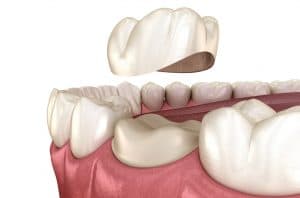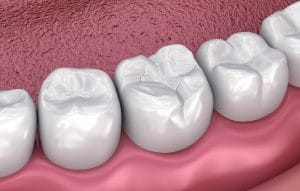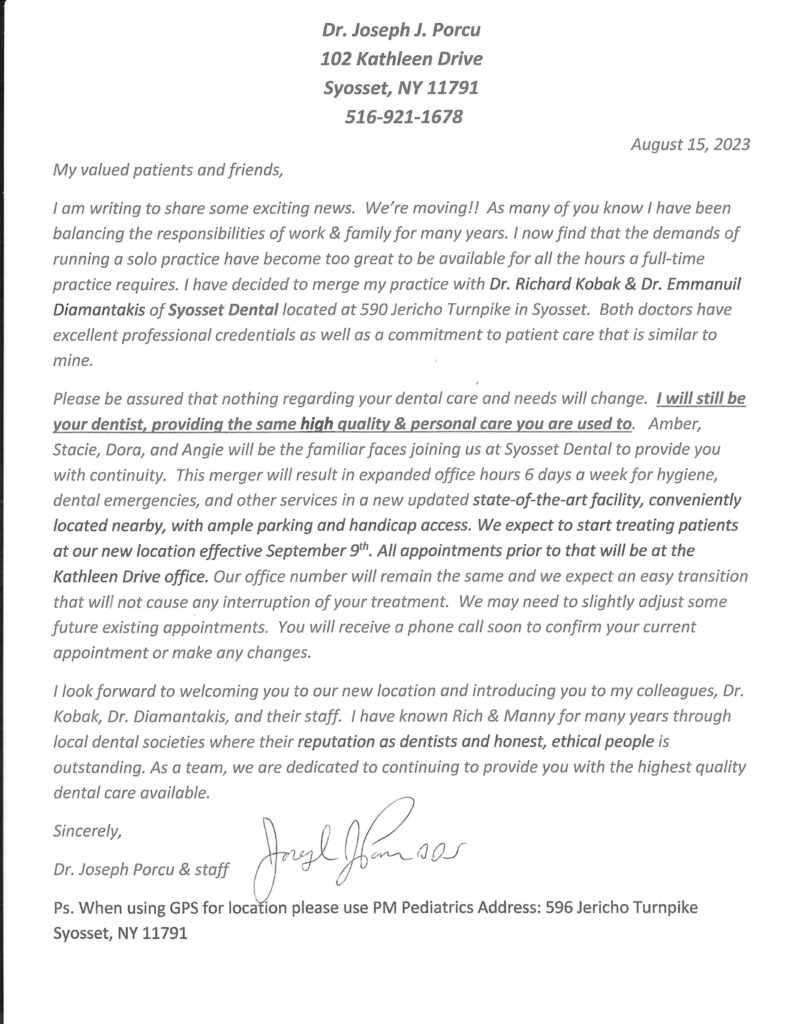 For many common oral health concerns, there are specific risk factors to developing that, usually, are easy to control once you identify them. For example, tooth decay and gum disease develop from excessive oral bacteria buildup. Therefore, inadequate dental hygiene and preventive care are two of the biggest risk factors for developing it. Some concerns, however, don’t have singular causes, like oral bacteria, to defend against. For example, patients with obstructive sleep apnea (OSA) can have many varying contributing factors to their condition, and addressing them may require completely different levels of care than it does for other patients. (more…)
For many common oral health concerns, there are specific risk factors to developing that, usually, are easy to control once you identify them. For example, tooth decay and gum disease develop from excessive oral bacteria buildup. Therefore, inadequate dental hygiene and preventive care are two of the biggest risk factors for developing it. Some concerns, however, don’t have singular causes, like oral bacteria, to defend against. For example, patients with obstructive sleep apnea (OSA) can have many varying contributing factors to their condition, and addressing them may require completely different levels of care than it does for other patients. (more…)
How Gum Disease Could Raise Your Heart Health Risks
 When your dentist tells you that you have gum disease, the need to treat it can be more serious than you might realize. As one of the most common chronic oral health conditions, many people will have to deal with gum disease at some point in their lives. In addition to some of the more well-known threats that gum disease can pose to your oral health, including tooth loss, there are also more profound ways in which gum disease can impact your overall systemic health. In cases where gum disease has become severe, these can include significant risks to your heart health. (more…)
When your dentist tells you that you have gum disease, the need to treat it can be more serious than you might realize. As one of the most common chronic oral health conditions, many people will have to deal with gum disease at some point in their lives. In addition to some of the more well-known threats that gum disease can pose to your oral health, including tooth loss, there are also more profound ways in which gum disease can impact your overall systemic health. In cases where gum disease has become severe, these can include significant risks to your heart health. (more…)
Things to Think About Before Getting Your Dental Crown
 Even in the most advanced forms of dentistry, many of the concepts that guide treatment have been around for centuries. For example, restoring teeth with dental crowns is one of the most traditional forms of restorative dentistry. A dental crown is a custom-designed restoration that’s crafted to match a tooth’s size, shape, contour, and appearance. Placing a crown over a cracked, broken, or otherwise compromised tooth can help restore the tooth’s ability to function without sustaining any further damage. However, ensuring the success of your restoration long after it’s been placed requires care and attention, which you should consider carefully before receiving your custom dental crown. (more…)
Even in the most advanced forms of dentistry, many of the concepts that guide treatment have been around for centuries. For example, restoring teeth with dental crowns is one of the most traditional forms of restorative dentistry. A dental crown is a custom-designed restoration that’s crafted to match a tooth’s size, shape, contour, and appearance. Placing a crown over a cracked, broken, or otherwise compromised tooth can help restore the tooth’s ability to function without sustaining any further damage. However, ensuring the success of your restoration long after it’s been placed requires care and attention, which you should consider carefully before receiving your custom dental crown. (more…)
What’s a Good Way to Makeover Your Smile?
 It’s just the nature of some smile concerns that multiple of them occur at once. For a lot of people, this can make the process of improving their smiles seem difficult, or even impossible, and discourage them from even trying. For many patients, however, we can often create a smile makeover plan that not only address all of their smile concerns, but does so in a way that’s much more efficient and minimally invasive than they expect. The key is to diagnose the specific concerns you have with your smile’s appearance, then devise a plan that focuses on improving your smile as a whole. (more…)
It’s just the nature of some smile concerns that multiple of them occur at once. For a lot of people, this can make the process of improving their smiles seem difficult, or even impossible, and discourage them from even trying. For many patients, however, we can often create a smile makeover plan that not only address all of their smile concerns, but does so in a way that’s much more efficient and minimally invasive than they expect. The key is to diagnose the specific concerns you have with your smile’s appearance, then devise a plan that focuses on improving your smile as a whole. (more…)
Why Waiting to Fix a Chipped Tooth Is a Bad Idea
 Ideally, you would address any concern you ever have with your smile as soon as you notice it. In real life, however, you have a lot more to worry about than just your oral health, and sometimes, even obvious problems might not seem as high a priority as other concerns. For example, chipped teeth are common, but they’re often left untreated because they don’t seem severe. Compared to a significant fracture or break in your tooth, a tiny chip off its edge can seem relatively minimal. Yet, if you wait too long to fix the chipped tooth, that tiny damage can end up having a huge effect on the health and integrity of the tooth’s structure. (more…)
Ideally, you would address any concern you ever have with your smile as soon as you notice it. In real life, however, you have a lot more to worry about than just your oral health, and sometimes, even obvious problems might not seem as high a priority as other concerns. For example, chipped teeth are common, but they’re often left untreated because they don’t seem severe. Compared to a significant fracture or break in your tooth, a tiny chip off its edge can seem relatively minimal. Yet, if you wait too long to fix the chipped tooth, that tiny damage can end up having a huge effect on the health and integrity of the tooth’s structure. (more…)
Did You Know There Are Different Kinds of Teeth Stains?
 If you notice that your teeth are stained, your instinct might be to go seek teeth-whitening treatment. This may or may not be the ideal solution; it depends largely on the type of stains that have developed on your teeth. Though you may not realize it, your teeth can change color for a variety of reasons, and not all cases of teeth staining are the same. Before recommending teeth-whitening, or any other dental treatment, we’ll first perform a careful examination to diagnose your specific kind of teeth stains. Then, we can help you decide on which treatment is best for your smile. (more…)
If you notice that your teeth are stained, your instinct might be to go seek teeth-whitening treatment. This may or may not be the ideal solution; it depends largely on the type of stains that have developed on your teeth. Though you may not realize it, your teeth can change color for a variety of reasons, and not all cases of teeth staining are the same. Before recommending teeth-whitening, or any other dental treatment, we’ll first perform a careful examination to diagnose your specific kind of teeth stains. Then, we can help you decide on which treatment is best for your smile. (more…)
Do You Snore, or Do You Have Sleep Apnea?
 If you snore a lot, the impact it can have on your health and wellbeing depends on several different factors. For example, how often and how deeply you snore could determine whether your habit can have an impact on your overall cardiovascular health. In some cases, it might also be an indication of something much more serious than a habit, such as obstructive sleep apnea. What’s common in most cases, however, is the fact that snoring does have an impact when it occurs repeatedly. To find out if it’s just a habit or a sign of something more severe, talk to your dentist about your snoring or sleep apnea. (more…)
If you snore a lot, the impact it can have on your health and wellbeing depends on several different factors. For example, how often and how deeply you snore could determine whether your habit can have an impact on your overall cardiovascular health. In some cases, it might also be an indication of something much more serious than a habit, such as obstructive sleep apnea. What’s common in most cases, however, is the fact that snoring does have an impact when it occurs repeatedly. To find out if it’s just a habit or a sign of something more severe, talk to your dentist about your snoring or sleep apnea. (more…)
Hello world!
Welcome to WordPress. This is your first post. Edit or delete it, then start writing!
Is Your Tooth Cracked? It Might Be More Serious than You Think
 Some issues that can affect your teeth don’t seem serious, even though they are. Others are obviously a significant threat, yet patients may still hesitate to address them, allowing them to grow much more serious than you expect by the time they do seek treatment. Cracked/fractured teeth are a common type of the latter. Even if the damage to the tooth is visibly significant, patients might not seek treatment for the cracked tooth immediately. Today, we examine why that’s never a good idea, and why the damage to your tooth might pose a bigger threat to your oral health than you realize. (more…)
Some issues that can affect your teeth don’t seem serious, even though they are. Others are obviously a significant threat, yet patients may still hesitate to address them, allowing them to grow much more serious than you expect by the time they do seek treatment. Cracked/fractured teeth are a common type of the latter. Even if the damage to the tooth is visibly significant, patients might not seek treatment for the cracked tooth immediately. Today, we examine why that’s never a good idea, and why the damage to your tooth might pose a bigger threat to your oral health than you realize. (more…)
The Difference Between Needing a Filling and a Root Canal
 Tooth decay can occur at any stage in your life, and treating it is a common concern for most patients. Yet, exactly how you treat tooth decay depends on several different factors, and the success of your treatment relies heavily on customizing it to address your specific needs. For example, both tooth fillings and root canal treatment are designed to help you address tooth decay and save your healthy, natural tooth structure. However, one can help you stop mild to moderate decay from growing worse, while the other is designed to save your tooth when it’s in the grips of much more severe decay. (more…)
Tooth decay can occur at any stage in your life, and treating it is a common concern for most patients. Yet, exactly how you treat tooth decay depends on several different factors, and the success of your treatment relies heavily on customizing it to address your specific needs. For example, both tooth fillings and root canal treatment are designed to help you address tooth decay and save your healthy, natural tooth structure. However, one can help you stop mild to moderate decay from growing worse, while the other is designed to save your tooth when it’s in the grips of much more severe decay. (more…)











